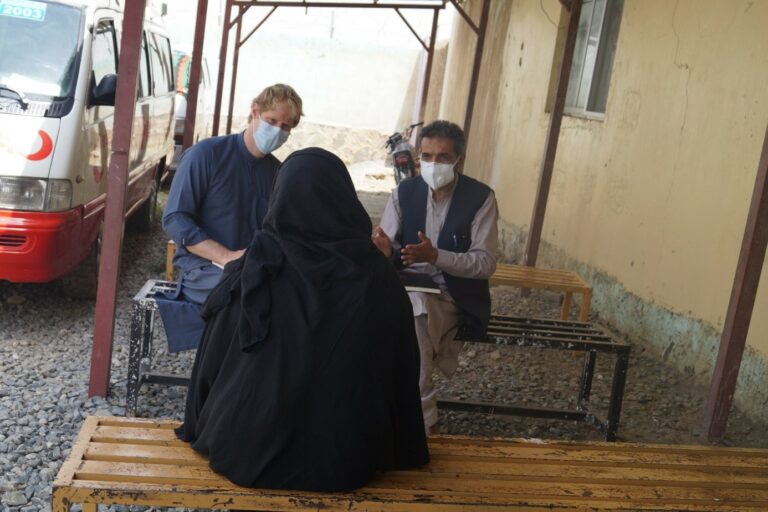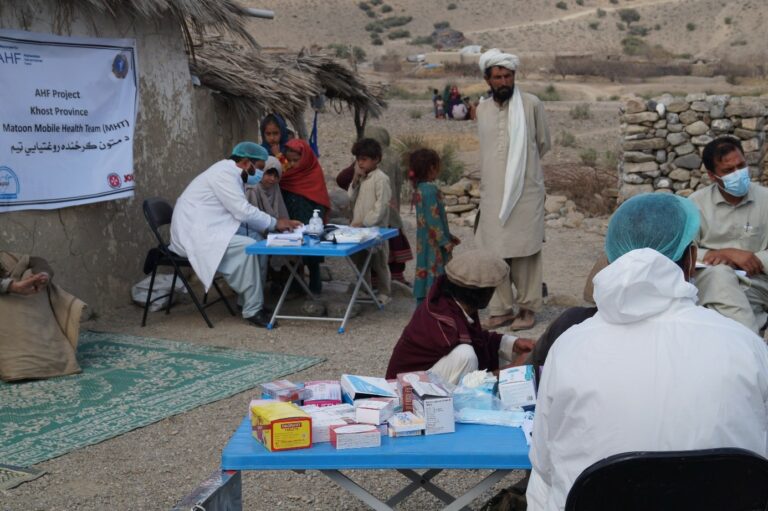Humanitarian needs will increase in Kabul and other regions
The majority of NATO troops are expected to have left Afghanistan by July. The complete withdrawal is planned for September. The possible shift of power will also affect the work of Johanniter in the country. Against this background, Rik Vaassen, Programme Officer of Johanniter International Assistance for Afghanistan, travelled to Kabul at the beginning of June. There, he is discussing the future perspectives of Johanniter in the country together with its team and partners.

Medical aid extended to new project region
In Kabul, together with the Federal Foreign Office, Johanniter supports medical care for internally displaced persons in 21 of a total of 51 informal settlements. “Around 55,000 people are already living here, and the need will continue to increase as more and more people flee to the capital,” says Vaassen. With the withdrawal of the troops, however, aid organisations are also ceasing their work, which is why Johanniter is looking into expanding its aid to other settlements.
In addition, a new project region will be opened up: “Together with local partners, we will improve medical care in Badghis province, in the north-west of the country, and focus on trauma care,” explains Vaassen. Johanniter had already implemented a similar project in Kunduz, but it could not be continued due to a lack of funding.
Support for refugees from Pakistan

Vaassen also visited Khost province on the Pakistani border for several days. For many years, Johanniter and its partner HADAAF have been providing medical care in Gulan Camp and the neighbouring settlements. The refugee camp accommodates around 34,000 people from Pakistan who fled military operations in Pakistan’s North Waziristan district in 2014. “We are not allowed to work and have no land to grow anything. For seven years we have had to wait every month for our food rations to survive”, reports a refugee in the camp. The refugees cannot return to Pakistan, and a life outside the camp does not seem possible in the foreseeable future. However, most organisations have withdrawn from Gulan Camp in June.
“The people here are dependent on humanitarian aid. The lack of perspective is overwhelming. We have to make sure that these people are not forgotten.”
– Rik Vaassen
Background
Johanniter has been working in Afghanistan for almost 20 years, implementing medical projects in Kabul and Khost together with its partners. In Khost, for example, the main health station is run in Gulan Camp. In addition, three mobile clinics provide care in settlements that have taken in refugees. Every month, more than 9,000 medical consultations are carried out as a result and between 30 and 40 children are born in the clinic.
